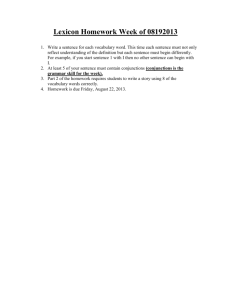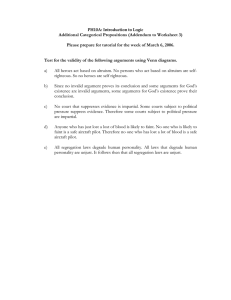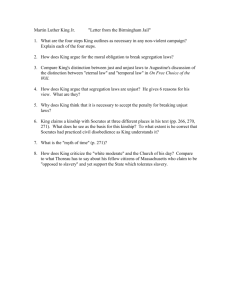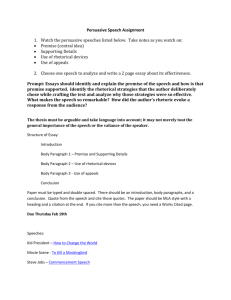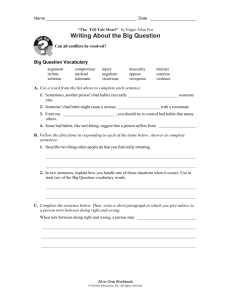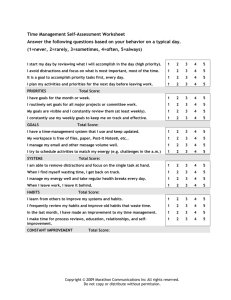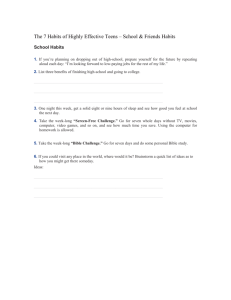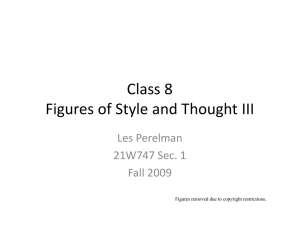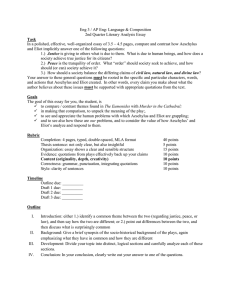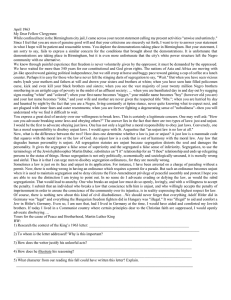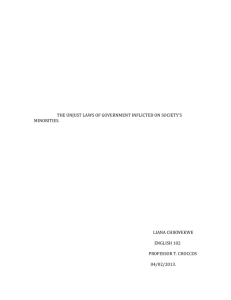Vocabulary list 6
advertisement
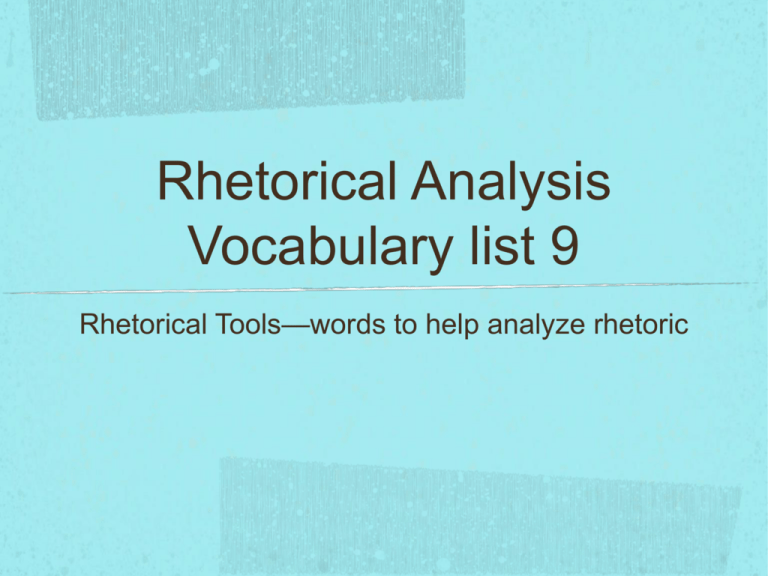
Rhetorical Analysis Vocabulary list 9 Rhetorical Tools—words to help analyze rhetoric Asyndenton The omission of conjunctions (F,A,N,B,O,Y,S) between phrases. EX: “Vini, Vidi, Vici” – Julius Caesar = “I came, and I saw, and I conquered.” It often has the effect of hurrying the rhythm and adding force to the text. Polysyndenton • • • Employing many (more than are grammatically needed) conjunctions (F,A,N,B,O,Y,S) in a list of phrases. Ex: “In years gone by, there were in every community men and women who spoke the language of duty and morality and loyalty and obligation” – William Buckley. Has the effect of slowing down the rhythm, creating a “sing-song” effect, and giving equal weight to the parts of the list. Anadiplosis • • • The repetition of the last word or words from the previous line, sentence, or phrase at the beginning of the next. EX: "Watch your thoughts; thoughts become words. Watch your words; words become actions. Watch your actions; actions become habits. Watch your habits; habits become character. Watch your character; it becomes your destiny.” “I am Sam. Sam I am.” – Dr. Seuss Syllogism The format of a formal argument that consists of major premise, a minor premise, and a conclusion. EX: A: Laws that degrade the human spirit are unjust. B: The segregation laws in Alabama degrade the human spirit. C: Therefore, the segregation laws in Alabama are unjust. Antecedent • The word, phrase, or clause to which a pronoun refers. Colloquial Language The use of slang in writing, often to create local color and to provide an informal tone. Dialect • The recreation in writing of regional spoken language, with its sounds and rhythms.
